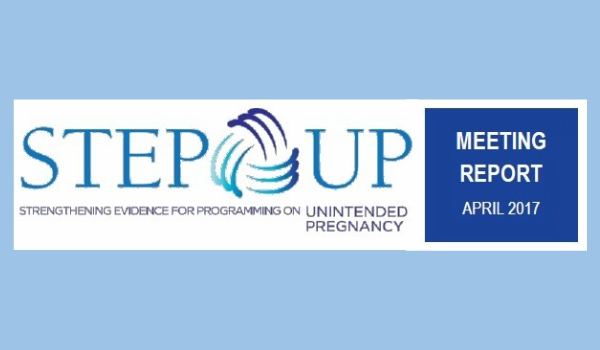
Regional Technical Meeting Report
Lusaka, Zambia, April 11-13, 2016
In April 2016, the Population Council, the World Health Organization, and the International Consortium for Emergency Contraception convened a three-day regional technical meeting aimed at helping participating countries meet their obligations under the Maputo Protocol to protect and promote the reproductive health rights of women and girls, with a special emphasis on survivors of sexual and intimate partner violence. Participants included representatives from six countries in sub-Saharan Africa – Botswana, Ethiopia, Kenya, Malawi, Rwanda, and Zambia – as well as international and regional experts on reproductive health, law, and human rights. Presentations and discussions focused primarily on the prevention and management of pregnancy in the context of sexual violence (SV) and intimate partner violence (IPV), as well as the broader requirements of Maputo relating to emergency contraception (EC) and safe abortion services.
Many countries in the region have taken steps to strengthen the health response to survivors, including prevention of HIV and pregnancy from rape. All six countries represented at the meeting have established national guidelines for comprehensive SV care and all include routine provision of EC in these guidelines. However, only one of the six countries – Ethiopia – treats access to safe abortion as an essential component of post-rape care. In the other five countries, as in most of the region, abortion is not legally available on grounds of SV or IPV, or is unavailable to survivors in practice due to restrictive laws, policies and/or administrative practices. National guidelines on SV tend to be silent or vague on the rights of rape and incest survivors to safe abortion care.
FULL REPORT: http://www.popcouncil.org/uploads/pdfs/2017RH_MaputoProtocol.pdf



